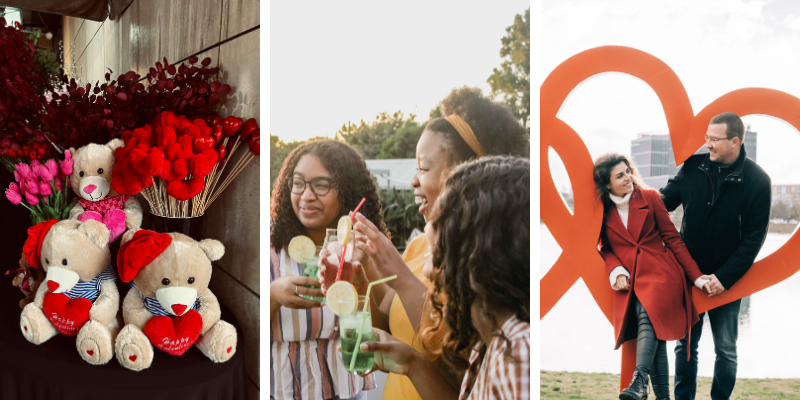Do you ever feel overwhelmed when planning an event? Or get stuck during the organizing process, unsure if you’re forgetting an important step? Experience a lack of inspiration? Or a budget shortage?
We’ve all been there at some point. There’s actually a framework for event planning and marketing that can help solve all that! It’s commonly known as the “5 C’s” and experienced pros use this structure to (1) help keep things on track, (2) streamline communication, and (3) create more successful events.
If that sounds like something your events could benefit from, let’s dive into the event marketing basics of the 5 C’s.
Why are the 5 C’s Important?
Event planning involves a lot of moving parts, and it’s easy for things to go off the rails. By focusing on the 5 C's, you can:
- Increase the likelihood of success: The framework helps to ensure that all key aspects of your event are considered and addressed.
- Enhance guest satisfaction: By focusing on content, communication, and coordination, you can create a positive and enjoyable experience for attendees.
- Maximize ROI: A well-planned event with a clear concept and engaging content is more likely to achieve its objectives and deliver a strong return on investment.
- Improve efficiency: The 5 C's provide a structured approach to event planning, helping you to stay organized and focused.
Essentially, the 5 C's provide a roadmap for event organizers like you to create impactful and successful events that meet your objectives and leave a lasting impression on your guests.
What are the 5 C’s?
We're glad you asked! The 5 C's of event marketing are:
1. Concept
What is It?
This is the big idea behind your event. What is its purpose? What are you trying to achieve? What kind of experience do you want to create for your attendees? Your concept should be clear, concise, and inspiring.
Why is It Important?
A strong concept ensures the event has a clear purpose and direction. It acts as the foundation for all other decisions, from choosing a venue to selecting speakers. Without a solid concept, an event can easily become unfocused and fail to meet its objectives.
How to Execute This Step
-
Define your purpose: Clearly articulate the goals and objectives of your event. What do you want to achieve? (e.g., increase brand awareness, generate leads, educate attendees, foster community).
-
Identify your target audience: Who are you trying to reach? What are their interests, needs, and expectations?
-
Develop a unique theme: A memorable theme can help your event stand out and create a cohesive experience.
-
Create a value proposition: What makes your event unique and worth attending? What benefits will attendees gain?
2. Coordination
What is It?
This involves all the logistical aspects of planning and executing your event, from venue selection and contract negotiation to event registration and on-site management. Good coordination ensures that your event runs smoothly and efficiently.
Why is It Important?
Meticulous coordination is essential for bringing your event concept to life. It involves managing all the logistical details, ensuring everything runs smoothly, and dealing with any unexpected issues that may arise. Good coordination ensures a positive experience for attendees and helps prevent costly mistakes.
How to Execute This Step
-
Set a budget: Determine how much you can afford to spend on the event.
-
Choose a venue: Select a location that is appropriate for your event's size, style, and target audience.
-
Negotiate contracts: Secure contracts with vendors for catering, equipment rental, entertainment, etc.
-
Develop a timeline: Create a detailed schedule for all event activities, including planning, promotion, execution, and follow-up.
-
Choose a ticketing platform: Select a platform that meets your event's needs in terms of features, pricing, and integration capabilities.
-
Set ticket prices and tiers: Determine different ticket types (e.g., early bird, VIP, general admission) and their corresponding prices.
-
Manage logistics: Plan the flow of attendees, arrange for signage, manage security and crowd control, and coordinate on-site staffing, and other logistical details.
-
Create a backup plan: Develop contingency plans for potential issues like bad weather, equipment failure, or performer cancellations.
3. Content
What is It?
This is what your attendees will experience at your event. It includes everything from the speakers and presentations to the food and beverage options. Your content should be engaging, informative, and relevant to your target audience.
Why is It Important?
Engaging content is crucial for attracting and retaining attendees. Whether it's informative presentations, interactive workshops, or entertaining performances, the content should be tailored to the target audience and aligned with the event's objectives. High-quality content leaves a lasting impression and encourages attendees to return for future events.
How to Execute This Step
-
Curate speakers and presentations: Choose speakers who are experts in their field and can deliver engaging presentations aligned with the event's theme.
-
Plan activities and experiences: Incorporate interactive elements, workshops, networking sessions, or entertainment to enhance attendee engagement.
-
Create compelling visuals: Use high-quality visuals, such as slides, videos, and graphics, to support presentations and enhance the overall experience.
4. Communication
What is It?
This is how you promote your event and keep your attendees informed. It includes everything from your marketing materials to your on-site signage. Effective communication ensures that your attendees know what to expect and how to get the most out of your event.
Why is It Important?
Effective communication is key throughout the entire event lifecycle. It starts with promoting the event to potential attendees and continues through post-event follow-up. Clear, consistent communication ensures attendees are well-informed and engaged, maximizing attendance and satisfaction.
How to Execute This Step
-
Develop a marketing plan: Create a strategy to promote your event through various channels, including social media, email marketing, website, and advertising.
-
Design marketing materials: Create visually appealing brochures, flyers, website banners, and social media posts to generate interest.
-
Engage with attendees: Use email and social media to communicate important information, answer questions, and build excitement before, during, and after the event.
5. Culmination
What is It?
This refers to the lasting impression that your event makes on your attendees. It's about creating an experience that is memorable and meaningful. A strong culmination will help you achieve your event goals, whether it's generating leads, building relationships, or raising awareness for your brand.
Why is It Important?
This "C" focuses on the lasting impact of the event. It's about creating a memorable experience that achieves the event's goals, whether it's generating leads, building relationships, or raising awareness. A strong culmination ensures the event has a positive and lasting impact on attendees and organizers alike.
How to Execute This Step
-
Gather feedback: Collect attendee feedback through surveys or feedback forms to evaluate the event's success and identify areas for improvement.
-
Analyze results: Measure the event's impact against your objectives. Did you achieve your goals for lead generation, brand awareness, or knowledge sharing?
-
Follow up with attendees: Send thank-you notes, share event highlights, and provide relevant information to maintain engagement after the event.
-
Build on the momentum: Use the event as a springboard for future activities, such as content creation, product launches, or community building.
Final Thoughts
Planning an event can get overwhelming, between organizing the logistics, promoting ticket sales, and engaging with your audience. By focusing on the 5 C's, you can create an event that is successful and memorable…without feeling stressed out.
Need some help setting up tickets for your next event? We’re here for you! Schedule a call with one of our event experts. We can even set everything up for you, free of charge.














